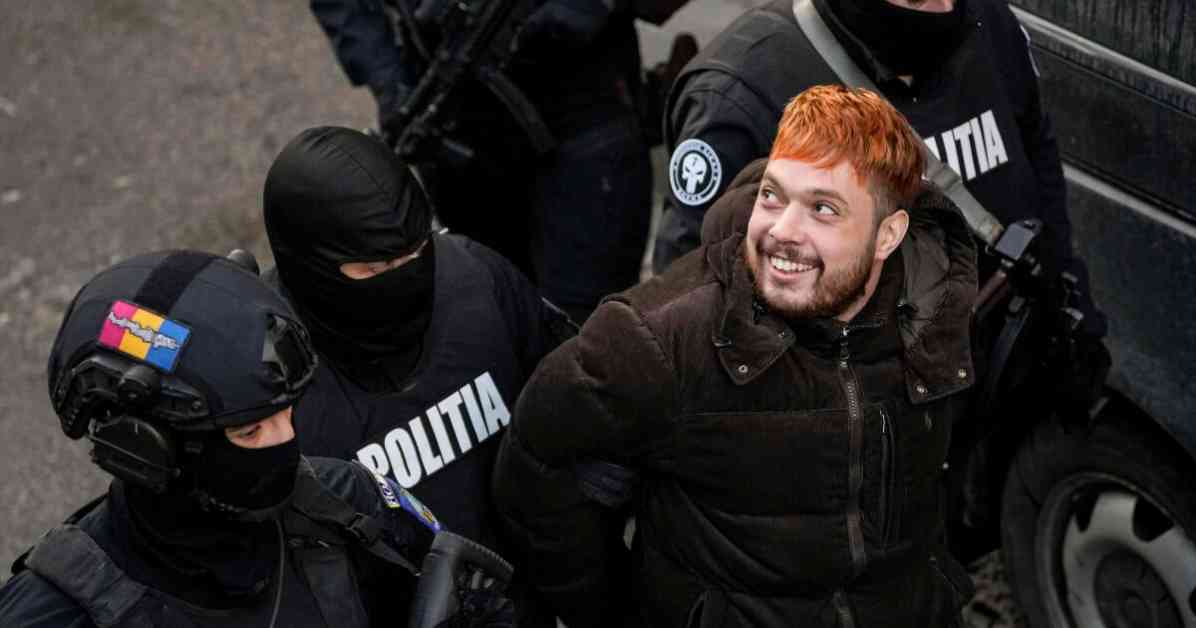A wanted fugitive French prisoner, Mohamed Amra, who orchestrated a deadly escape nearly a year ago, was finally apprehended in Romania, marking the end of a tumultuous 9-month manhunt. The French government disclosed that ten of his suspected accomplices were also captured. The capture of Amra was hailed as a significant triumph by French President Emmanuel Macron, who commended the collaborative efforts of European nations that led to his arrest. This high-stakes capture unfolded as Romanian police successfully carried out an operation in the capital city of Bucharest to detain Amra, alias “The Fly.”
Amra’s Criminal Escapades and Violent Past
The escapade began when two guards lost their lives during a daring prison convoy ambush in Normandy last May, enabling Amra’s escape and setting off a massive search operation. Following this incident, Interpol issued a red notice at France’s request for Amra’s arrest. The 30-year-old fugitive, who was originally convicted for burglary in Evreux, Normandy, was also under investigation for an attempted organized homicide and a kidnapping that ended in tragedy, according to prosecutors. Notably, Paris Prosecutor Laure Beccuau highlighted Amra’s connections with criminal syndicates in Marseille and his alleged leadership role in a drug trafficking ring.
Amra’s criminal history is a saga of escalating violence, starting from his early teens with aggravated robberies. Over the years, he transitioned into organized crime, earning monikers like “La Mouche” (The Fly), “Yanis,” “Momo,” and “Schtroumpf” (Smurf). Despite his checkered past, authorities initially underestimated the extent of the threat posed by Amra. Moreover, in a 2024 judiciary report, it was revealed that Amra might have continued his illicit drug activities from within his prison cell, even orchestrating hits while in detention.
Challenges in Combating Organized Crime
The daring escape and violent legacy of Mohamed Amra shed light on the complex challenges faced by French law enforcement in curbing organized crime and safeguarding high-risk prisoners. Following this high-profile incident, over 300 investigators were deployed to track down Amra, emphasizing the severity of his criminal record and the urgency to bring him to justice. The incident, captured on CCTV, evoked shock and fear across France, propelling Amra to the top of the country’s most wanted list.
In response to growing concerns about the ease with which incarcerated criminals conduct illicit activities, Justice Minister Gerald Darmanin pledged to enhance prison security measures. The proposed establishment of a “high security prison” modeled after Italian anti-mafia laws aims to isolate France’s most notorious drug traffickers, ensuring that future incidents akin to Amra’s escape are prevented. The promise of a supermax prison is expected to provide a comprehensive solution to the issue of criminal operations continuing unabated within prison walls.
While Amra’s arrest has brought a sense of relief to the families of the slain guards and the law enforcement community, his legal proceedings are expected to unfold as per French jurisdiction. Despite his denial of the charges against him, the swift identification and capture of Amra in Romania mark a significant victory for the collaborative efforts of European law enforcement agencies. The extradition process and subsequent trials will shed further light on the intricate web of organized crime networks that Amra was allegedly involved in.
In conclusion, the capture of Mohamed Amra, after a protracted manhunt spanning multiple countries, highlights the persistent efforts of law enforcement agencies to bring dangerous criminals to justice. The ordeal serves as a stark reminder of the challenges posed by organized crime and the critical need for enhanced security measures to combat such threats effectively. As the legal proceedings against Amra progress, the case will continue to unravel the intricate details of his criminal activities, providing valuable insights into the sophisticated world of organized crime.






















